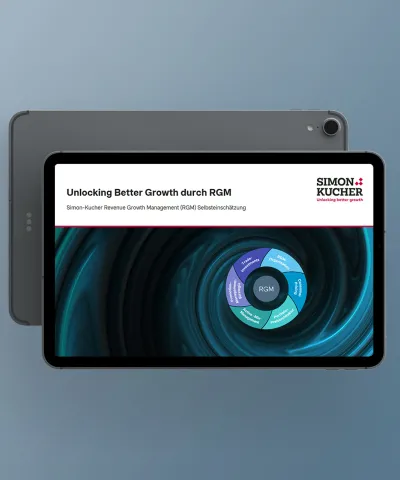Not quite - but we’re certainly witnessing a shift.
For over three decades, low-cost carriers transformed travel, making it accessible to millions. Now factors like rising operational costs, demand for sustainable options, and changing traveler priorities are reshaping this model. While ultra-low fares may be less common, affordable travel isn’t disappearing. Instead, it’s evolving to better reflect what today’s travelers want: unique experiences, flexibility, and responsible choices.
From price-driven to value-driven travel
Historically, low-cost travel was focused solely on affordability. But as our 2024 Travel Trends Study highlights, this is no longer enough for many travelers. Increasingly, people are seeking experiences that feel personal and unique, not just economical. More travelers today want options that reflect their individual interests and values, with demand for personalized experiences continuing to rise.
The focus on value rather than just price provides new opportunities for travel providers. Today’s travelers aren’t simply looking for the lowest fare; they want meaningful experiences. Budget travel is becoming more “value” travel, as brands that offer options beyond just the basic fare can attract consumers who are willing to spend more for a worthwhile experience. Now, ‘experiences’ doesn’t mean ‘expensive’ — for example, people may prefer to book an Airbnb in a city neighborhood to live like a local instead of paying for an expensive five-star hotel in a more touristy spot.
Sustainability: The new cost of entry
Sustainability is no longer optional; it’s increasingly a must-have. Travelers are highly aware of their environmental impact, and many are willing to pay extra for sustainable travel options. Our Travel Trends Study found that 70 percent of travelers prioritize sustainability, especially in accommodation and when seeking less crowded destinations. This shift means airlines, hotels, and tour operators are facing new pressures to introduce sustainable offerings, from carbon offsets to eco-friendly lodging. Lufthansa’s Green Fares option is an example of how the industry is trying to better incorporate (and monetize) sustainability.
Although sustainable choices come with higher costs, they provide travelers a way to align their choices with their values. Budget-friendly options remain available, but travelers who want to minimize their environmental impact can choose sustainable options at different price points. And sustainability is not, in our experience, directly monetizable — consumers are not necessarily happy to pay more to be green. Instead, they increasingly demand companies to be green and sustainable, which may lead to green brand equity that can be indirectly monetized.
Overtourism and local reactions
The popularity of low-cost travel has led to another challenge: overtourism. Cities like Venice, Barcelona, and Amsterdam have faced a heavy tourism burden, prompting local governments to respond with measures like tourist taxes, caps on short-term rentals, and even limits on daily visitors. This backlash isn’t only a local reaction — it reflects a broader need to balance tourism with community wellbeing, environmental impact, and cultural preservation. It also touches on social impacts — e.g., Airbnb rentals have caused rent inflation or housing shortages for locals in Lisbon and Athens.
Budget travelers may face higher fees or seasonal restrictions in iconic destinations, but this has also sparked interest in less-frequented, affordable locations that offer similarly rewarding experiences. This aligns with a growing interest in “authentic” travel, where people seek genuine connections with places and cultures rather than crowded tourist sites.
This trend benefits travel providers as well, who can promote lesser-known destinations that offer value without contributing to the pressures of overtourism. This approach helps alleviate strain on popular sites, allowing budget-conscious travelers to experience unique journeys while respecting local communities.
Personalization: The holy grail of travel
As travelers become more demanding, the key for travel providers to win them is fundamentally personalization. In practice that means having tailored offerings (e.g., air fares, hotel rates) that provide the value that is relevant to a customer.
Why is this crucial? First of all, it enables travel players to align with the emerging trends; personalization makes travel more experiential and more aligned to customer needs – which is the key underlying theme of today’s travelers. Travelers looking for budget options can be presented with a no-frills offering at a lower price. Travelers who are more environmentally conscious can be offered a package that is fully sustainable.
But to achieve that, travel players need to have a better understanding of customer needs and a clear way of identifying those needs prior to bookings. New technologies like NDC as well as AI can be harnessed by travel players to achieve that. But even basic changes in offering, such as having a family-related fare when the group includes children or a couple-themed fare, are straightforward ways to offer personalization without relying on complex or sophisticated technologies.
In simple terms, price was the main focus in the past, which led to the growth of low-cost travel. However, in the years to come, the focus will be on delivering value and that can best be achieved through personalization – as value is a relative term that differs for each one of us.
Affordable travel is here to stay - in a new form
The traditional low-cost model is evolving, but affordable travel is here to stay. Industry players are responding to today’s travelers by blending affordability with quality, sustainability, and personalization. By offering a range of options that reflect these priorities, they’re ensuring budget-friendly travel remains both viable and appealing.
While the “race to the bottom” in pricing may be over, budget travel is entering a smarter, more dynamic era, offering value-driven experiences tailored to the modern traveler.
Are you ready for this new travel era?
Reach out to us to discuss more about the future of low-cost travel and how travel providers can deliver meaningful and affordable travel experiences.








